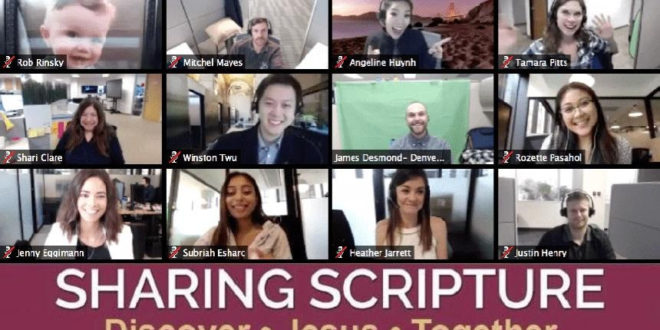Unto the Least of These
North Dakota Senator Jeff Magrum pushes for a study which aims to develop more accessible housing for the physically disabled.
“I think it’s worthwhile to really figure out what [we] can do for our brothers and sisters who are disabled so they can take care of themselves, because that’s ultimately what they want – to be as independent as they can be,” Magrum said, as quoted by Joel Porter for for KXNET.
Many people, no matter their religious beliefs, will agree that helping the disabled is something that the able are called to do. It is a worthy cause … as long as it does not dip too deeply into some people’s pocketbooks.
And while the Scriptures do outline some exceptions for partiality in who exactly is eligible for and should receive church assistance (1 Timothy 5), Jesus’ life reveals that grace is for all. Just as instructed in Zechariah 7:8-10, Jesus sought justice, demonstrated mercy, and felt compassion for the widow, the fatherless, the poor, the foreigner, the disabled, the downtrodden, the oppressed, the sorrowful parents, the possessed, the tax collectors, the oppressors, the self-righteous. …
One of the many examples Jesus provides us is found in Luke 8:40-56.
Jesus and the disciples just returned to Galilee by boat and barely had time to regain their footing before a synagogue leader with a dying daughter fell at Jesus’ feet, begging for her healing. This would be an important mission because not only would Jesus heal a young child, but also be recognized as the Son of God before a Jewish leader.
But before any of these miracles could happen, a women suffering from years of bleeding reached out from the crowd and touched the fringe of Jesus’ cloak. There are several important items to note here. She was most likely living in loneliness, unable to feel another human’s touch for twelve years. According to Levitical law, due to her heavy bleeding (uncleanness) she should not be around other Jews, let alone a synagogue leader or the Rabbi (Jesus). Furthermore, deliberately defiling one of them with her touch would likely cost her her life.
Fortunately, because she reached out in faith and because Jesus is compassionate, Jesus healed her and also gave her a chance to profess this restoration by asking aloud who in the crowd touched Him. She professed her story. In response, Jesus addressed this once-disabled, once-ostracized woman as “Daughter.”
The outcast made before all a daughter of the Most High!
And yet a Jewish leader, a father, had lost a daughter. But the same gift was offered to this man. And because he believed, his daughter was brought back to life.
Rich and poor, righteous and sinful, able and disabled, young and old, Jesus extends His grace to all.
For Reflection
Connecting: Does the investment of your resources reflect the life and ministry of Jesus?
Sharing: How have Christians (mis)applied Deuteronomy 15:11 (the poor and needy will always be with us)?
- Christians error in only quoting the first half of the verse. The second half of the verse instructs us to help them out.
- This verse has been misconstrued because it’s not in the entire context of the chapter, which focuses on freeing people from debts.
- They have taken it to mean that we can forgive debts but not aid those who choose a life of poverty.
- It’s an example that we should all live with as little material goods as possible (backed by Jesus in Matthew 8:20).
- Without the cultural context and experience in which it was given, it’s difficult to interpret.
- Other:
Applying: Read John 4, which discusses the Samaritan woman at the well and the royal official, both of whom needed Jesus’ help. With a partner, compare and contrast the differences between the two stories found here and the two found in Luke 8:40-56.
~ Stefani Leeper
 Center for Creative Ministry A research organization and research center for Seventh-day Adventist pastors and their congregations
Center for Creative Ministry A research organization and research center for Seventh-day Adventist pastors and their congregations

